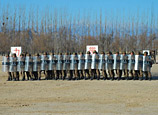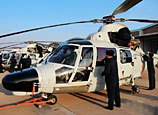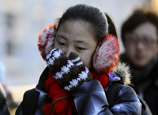
"Taxi drivers have no say in how fees are determined. They are upset about companies earning large profits but refusing to share gasoline, repairs and other costs," said Mao Baohua, a professor at Beijing Jiaotong University.
Experts said that in order to break the monopoly, the government needs to relax its control over the issuance of taxi licenses. The fixed number of taxis, they said, also fails to meet surging urban demand for public transport.
In Beijing, the number of licensed taxis has been limited to 66,600 over the past decade. In the meantime, the capital's population has grown from about 13.8 million in 2003 to the current 20 million.
The scarcity of licensed taxis has spawned a booming market for "black cars." Unlike registered cabbies, these drivers are often private car owners who pay no monthly fees and offer cheaper fares.
Their poaching of passengers, along with high franchise fees and cut-rate service fares, have resulted in cab driver protests and walkouts in several cities in recent years.
Yu said the cabbies' plight could be temporarily settled by raising taxi fares and reducing franchise fees, although a better long-term solution would be to let the market play its role.
"If private car owners can be allowed to compete on equal footing, the taxi companies will have to either lower the franchise fees or prepare for an exodus of cab drivers, who will find operating privately to be more profitable," Yu said.
 |
















 Why supervision on 'drug chicken' lacks intensity?
Why supervision on 'drug chicken' lacks intensity?


![]()
